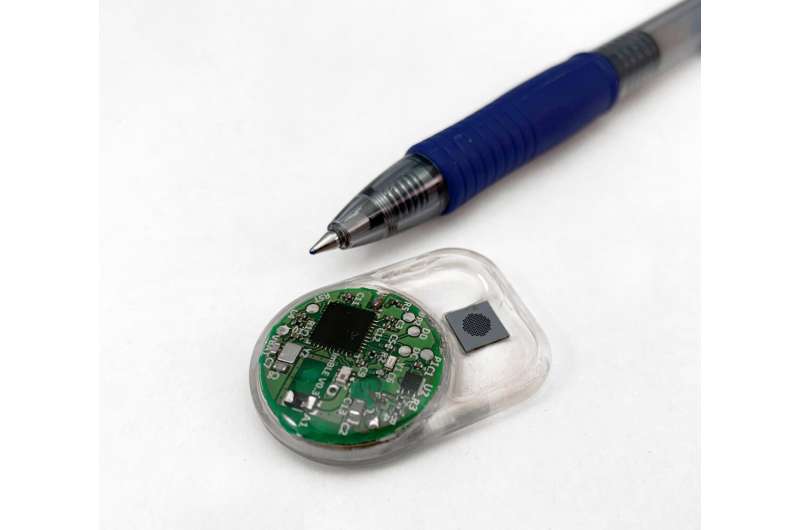Remote-controlled drug delivery implant size of grape may help chronic disease management

People with chronic diseases like arthritis, diabetes and heart disease may one day forego the daily regimen of pills and, instead, receive a scheduled dosage of medication through a grape-sized implant that is remotely controlled.
Researchers from Houston Methodist successfully delivered continuous, predetermined dosages of two chronic disease medications using a nanochannel delivery system (nDS) that they remotely controlled using Bluetooth technology. The nDS device provides controlled release of drugs without the use of pumps, valves or a power supply for possibly up to year without a refill for some patients. This technology will be tested in space next year.
A proof-of-concept paper recently published in Lab on a Chip (online June 25) explains how the Houston Methodist nanomedicine researchers accomplished long-term delivery of drugs for rheumatoid arthritis and high blood pressure, medications that are often administered at specific times of the day or at varying dosages based on patient needs.
"We see this universal drug implant as part of the future of health care innovation. Some chronic disease drugs have the greatest benefit of delivery during overnight hours when it's inconvenient for patients to take oral medication. This device could vastly improve their disease management and prevent them from missing doses, simply with a medical professional overseeing their treatment remotely," said Alessandro Grattoni, Ph.D., corresponding author and chair of the department of nanomedicine at Houston Methodist Research Institute.
Grattoni and the Houston Methodist researchers have worked on implantable nanochannel delivery systems to regulate the delivery of a variety of therapies for medical issues ranging from HIV-prevention to cancer. As basic research progresses with the remote-controlled device, the Houston Methodist technology is planned for extreme remote communication testing on the International Space Station in 2020. The team hopes that one day the system will be widely available to clinicians to treat patients remotely via telemedicine. This could provide both an improvement in the patients' quality of life and a reduction of cost to the health care system.
The battery-powered implant contains a microchip that is Bluetooth enabled and relies on wireless communication. To prove the technology worked as planned, the microchip was programmed for three different drug release settings—standard, decreased and increased. With each setting, a specific voltage was applied to a silicon nanochannel within the implant to control drug release.
Current drug delivery devices, such as pain or insulin implants, rely on pumping mechanisms or external ports and typically need refills every couple of months. The Houston Methodist device is implanted under the skin and uses a nanofluidic membrane made with similar technology used in the silicon semiconductor industry. The drug dosage and schedule can be tailored to each patient, and the implant delivers the drugs for many months, even a year, before refills are needed.
According to the CDC, chronic diseases are among the most common, costly and preventable of all medical problems.
More information: Nicola Di Trani et al, Remotely controlled nanofluidic implantable platform for tunable drug delivery, Lab on a Chip (2019). DOI: 10.1039/c9lc00394k
Journal information: Lab on a Chip
Provided by Houston Methodist





















